











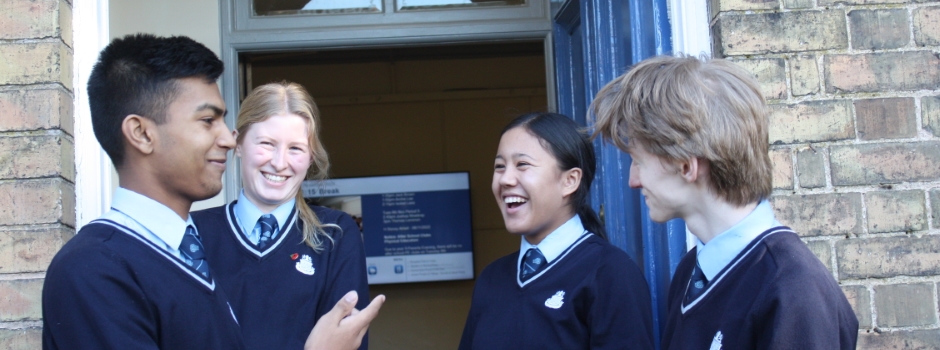









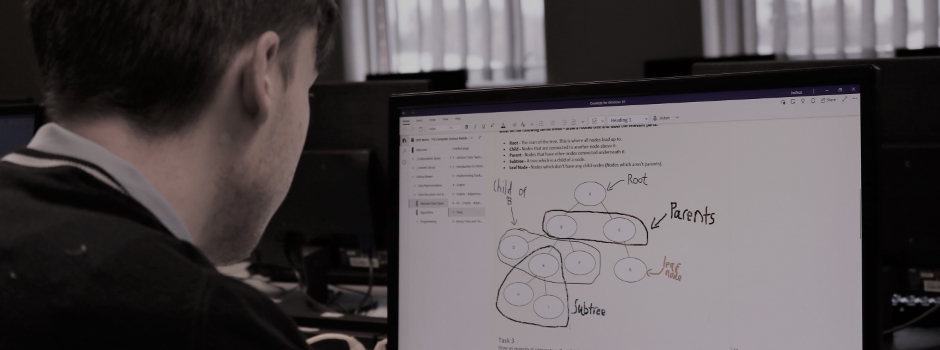



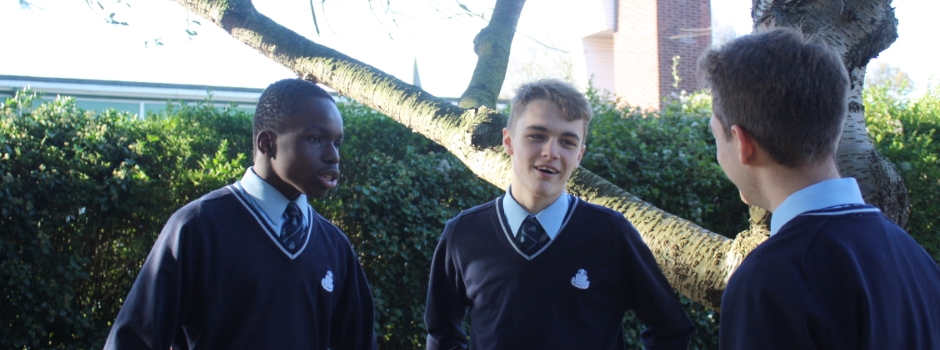







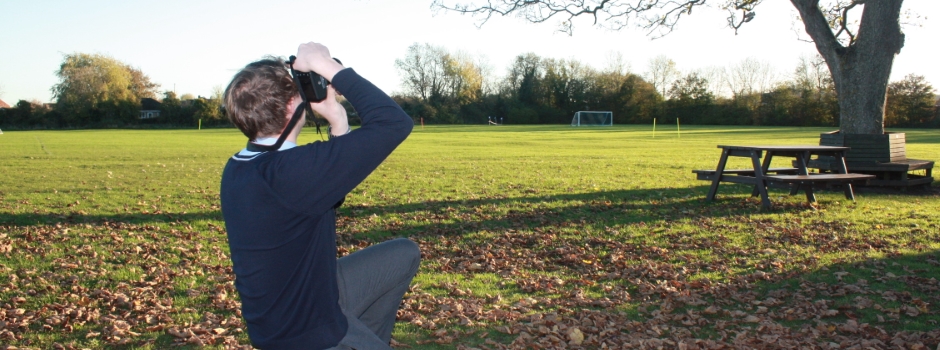
















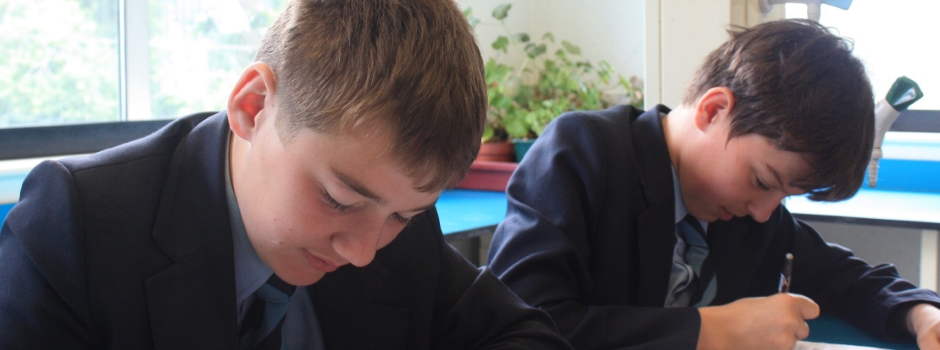
"I am unable to praise it enough or express how supportive and nurturing I have felt the entire staff to be."
Religious Studies Dept - Curriculum on a Page
Showing the curriculum by subject
Philosophy and Ethics
Curriculum Details - 2023/2024 (Current)
| Year | Term 1 | Term 2 | Term 3 | Term 4 | Term 5 | Term 6 |
| 12 | AQA Ethics: Situation Ethics Natural Moral Law Aristotle’s Virtue Ethics Conscience | Ethics: Utilitarianism Kantian Ethics Free will and moral responsibility | Ethics: Meta-ethics Application to issues of human life and animal life | Philosophy: The Problem of evil Miracles Self, death and afterlife | Philosophy: Religious experience Arguments for the existence of God: The Design Argument, The Cosmological Argument | Philosophy: Religious language Arguments for the existence of God: The Ontological Argument |
| 13 | Christianity: Sources of wisdom and authority God Self, death and afterlife Good conduct and key moral principles Expressions of religious identity | Christianity and dialogues: Christianity, gender and sexuality Christianity and science Christianity and the challenge of secularisation Christianity, migration and religious pluralism | Dialogues: The dialogue between Christianity and philosophy | Dialogues: The dialogue between Christianity and ethics | Learning Activities to revisit all topics | A Level Examination |
Religious Studies
Curriculum Details - 2023/2024 (Current)
| Year | Term 1 | Term 2 | Term 3 | Term 4 | Term 5 | Term 6 |
| 7 | What is religion? How can you tell if someone is religious? Where do you see religion around here and in the world around us? What is religion actually like in a particular place? | How and why are many people religious? Why do people belong to a particular religion? Have people always been religious? Do people need to believe in something? Why does thinking about the origin or the world/being human/time make some people religious? | Where did Judaism, Christianity and Islam come from and how are they linked? Where did Hinduism, Buddhism and Sikhism come from and how are they linked? What about non-religious groups? How do religious people get on with each other? | What is so important about key religious figures? What is so important about: Abraham and Moses; Jesus; Muhammad; Hindu teachers and scriptures; the Buddha; Guru Nanak? | What sort of attitudes result from being religious? What attitudes do religious people have to: themselves; life; God; life after death; right and wrong; truth? | So what does being religious mean? What can religious texts tell us about being religious? What do case studies tell us about being religious? How can we present what it means to be religious? What it means to be religious – a debate/group project. |
| 8 | What do Jews believe about God? Different types of Jews. Abraham, Isaac, Jacob, Moses What is the Temple and why is it so important to Jews? What do Jews believe about the Messiah? What are the most sacred texts for Jews? What laws do Jews live by? How do Jews worship and why do Jews pray? | How is Shabbat kept? What is Bar Mitzvah? What rituals do Jews perform during marriage/funeral ceremonies? What festivals do Jews celebrate? How have Jews been persecuted? How have Jews tried to create their own state and what difficulties have they faced? | What is Islam Beginnings and Belief; Muhammad; Rise to influence; The split; The Qu’ran; Belief about God; Prophets; Life after death; | Islam in the modern world The Five Pillars; Prayer and the Mosque; Ramadan and Eid -ul-Fitr; What happens on Hajj? Sunni and Shi’a; What should women wear? What is Jihad? Islam in Britain | What insights do different religions bring to good and evil? | What do religions say about the use of money and other resources? |
| 9 | Christian Beliefs and Teachings: Christianity as a World faith; Beliefs about the nature of God; The Trinity; Different beliefs about creation; The incarnation and Jesus, the Son of God; The crucifixion; The resurrection and ascension; Life after death; Judgement; Heaven and Hell; Sin and Salvation. | Worship; Prayer; Baptism; Holy Communion; Pilgrimage; Christmas; Easter; The Church in the local community: Food Banks, Street Pastors; The place of mission and evangelism; Church growth; The importance of the worldwide Church; Christian persecution; The Church's response to world poverty. | Islam Beliefs and Teachings: The Oneness of God and the supremacy of God's will; Key beliefs of Sunni and Shi'a Islam; nature of God; Angels; Predestination; Life after death; Prophethood and Adam; Ibrahim; Muhammad and the Imamate; The holy books in Islam. | Islam Practices: The Five Pillars, The Ten Obligatory Acts and the Shahadah; Salah: the daily prayers; Zakah: almsgiving; Hajj: Pilgrimage; Jihad; The festivals of Id-ul-Fitr and Id-ul-Adha; The festival of Ashura. | Relationships and Families: Christian teachings about human sexuality; Sexual relationships before and outside marriage; Contraception and family planning; Marriage; Divorce and remarriage; Christian teachings about the nature and purpose of families; Christian teachings about gender equality. | Application of religious teachings to various issues. |
| 10 | Religion and Life: The origins of the universe; The value of the world; The use and abuse of the environment; Pollution; The use and abuse of animals; The origins of human life; Abortion; Euthanasia; Death and the afterlife. | The Design argument; The First Cause argument; The argument from miracles; Further arguments against the existence of God; Special revelation and enlightenment; General revelation; Different ideas about the divine; The value of revelation and enlightenment. | Introduction to religion, peace and conflict; violent protest and terrorism; reasons for war; nuclear war and weapons of mass destruction; The just war; Holy war and religion as a cause of violence; Pacifism and peacemaking; Christian responses to victims of war. | Reasons for crime; Christian attitudes to lawbreakers and different types of crime; Aims of punishment; Christian attitudes to suffering; Christian attitudes to the treatment of criminals – prison, corporal punishment and community service; Forgiveness; The death penalty. | Revision and GCSE Examination |